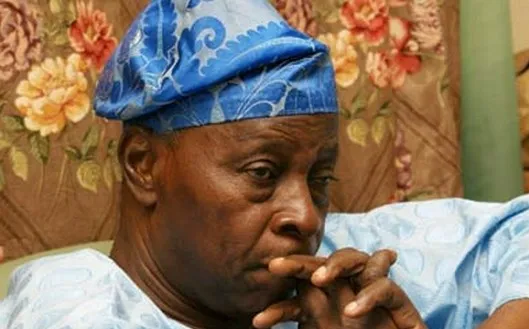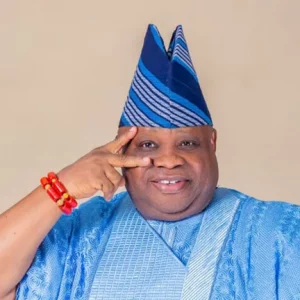Former Secretary to the Government of the Federation [SGF] and 1999 presidential candidate, Chief Olu Falae, has claimed that he, not Olusegun Obasanjo, won the election that returned Nigeria back to civilian rule.
Falae, who spoke on Arise TV’s Morning Show on Thursday during a special Democracy Day programme, alleged that the results of the 1999 presidential election were manipulated to deny him victory.
According to him, a legal analysis of the vote tallies carried out by his late legal counsel, J.O.K. Ajayi, showed that he defeated Obasanjo of the Peoples Democratic Party by over one million votes.

“I was told by my lawyer, the late Chief JOK Ajayi, that I won the election by over a million votes after a meticulous assessment of the figures declared,” Falae stated.
Despite the findings, he said his team chose not to challenge the outcome in court, prioritising the country’s fragile return to civilian governance after years of military rule.
“But we decided not to go to court. We were more concerned about the country returning to democracy peacefully after years of military rule,” he explained.
Falae’s disclosure has reignited conversations from Nigeria’s transitional period which followed the death of General Sani Abacha and the eventual assumption of office by General Abdulsalami Abubakar, who oversaw the transition to democratic governance.
The 1999 elections were widely regarded at the time as a product of compromise—a means to pacify aggrieved regions, particularly the South-West, following the annulment of the June 12, 1993, election won by MKO Abiola.
Falae’s candidacy, backed by a coalition of the Alliance for Democracy (AD) and the All Peoples Party (APP), was perceived as an olive branch to the Yoruba.
At the same time, Obasanjo—also a Yoruba and former military Head of State—on the platform of the PDP with significant backing from the military and political elite.
“There was so much pressure not to rock the boat. We made sacrifices for democracy to return. I accepted it in good faith then, but the truth must be told: I won that election,” Falae said during the interview.
“It’s not about me. It’s about the truth. Nigeria deserves to know the real story behind its so-called democratic rebirth,” he added.
Reflecting on Nigeria’s democratic journey, Falae lamented the persistent lack of electoral credibility, arguing that since 1993, the country has struggled to conduct free and fair elections despite maintaining democratic rule since 1999.
Stay ahead with the latest updates!
Join The Podium Media on WhatsApp for real-time news alerts, breaking stories, and exclusive content delivered straight to your phone. Don’t miss a headline — subscribe now!
Chat with Us on WhatsApp





